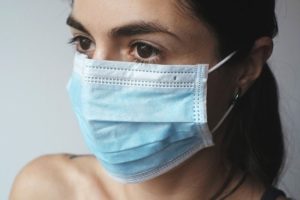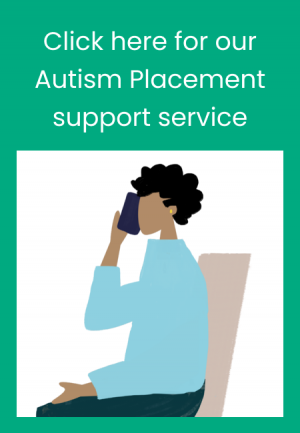This article on autistic mental health and the COVID-19 pandemic is offered by Action for Asperger’s, a specialist counselling service for autistic individuals as well as their families. It describes autistic mental health as experienced by the counsellors during a 14-month period and offers suggestions to mental health professionals going forward.
Action for Asperger’s is an organisation that counsels “lives affected by the experience of Asperger’s syndrome and autism” and while we have been a busy charity for several years, nothing could have prepared us for what the Covid-19 pandemic would mean to us in terms of workload.
Spring 2020 to Summer 2021
In the early days of the pandemic, spring to early summer of 2020, many of our clients reported how much they enjoyed this time, with social interaction and in-person social communication being statutorily discouraged, with the prime minister, Boris Johnson, sagaciously guiding our behaviours via his daily broadcasts through social media, newspapers, and television. In March 2020, the world had to behave as if autistic, shying away from physical contact, for if it didn’t, the prime minister and his ministers exhorted that the effects of the pandemic would become cataclysmic for everyone, but especially the elderly and infirm.
Fast forward 14 months, our counselling service has experienced an exponential growth due to high demand, and so that we could cope with that demand, we have recruited fifteen new counsellors, rising from five counsellors to twenty counsellors. Additionally, we have had to recruit extra staff to handle the bureaucracy that the surge in counselling has created. We have had to manage and adapt very quickly to this sharp spike in our workload; it was beyond what any pre-pandemic, prudent business plan could have envisioned.
The demand began in June 2020, around the time when it was becoming clear to us all that the pandemic wasn’t going away, and suddenly, for autistic individuals, depression replaced delight. Having a world behave as if autistic wasn’t enjoyable anymore. Autistic individuals wanted company, they wanted to communicate with others just as they had done so before, not wanting a lot of communication, just a little, as government policy, being an ever-moving feast, increased social isolation and loneliness.
Autistic Mental Health – Age groups most affected
It has been observed anecdotally by me that the age group 12-30 has suffered the most, for these are the cohort that have been contacting us mostly for support during this difficult time; for typical young people, social isolation contributes to premature mortality, poor mental health, non-communicable diseases, cognitive decline, as well as increasing addictive behaviours and risky sexual practices (1,2). Additionally, and rather worryingly, 18-24 years of age is the greatest risk period for the emergence of psychiatric disorders (3), likely to be exacerbated by enforced social isolation; particularly affected will be those who live alone, those who have existing mental health disorders, and those in marginalised groups (4). The World Health Organisation states that 1 in 160 children has an autism spectrum disorder (5), although this statistic is based on 2012 research (6) and when we consider marginalised groups, we can include autistic individuals; additionally, when we contemplate mental health disorders, if we go by the DSM-5 (7), manual of psychiatry, autism is a psychiatric disorder.
Prior research indicates that autism is associated with increased risk of physical and mental health problems among children (8) and adults (9). Autistic people are therefore at a disadvantage, both physically and psychologically, than their typical peers. Coupled with the consequences of a pandemic, we have a recipe for a potential disaster going forwards; at Action for Asperger’s we have noted this elevated risk and as counsellors feel great concern for our autistic population.
Autistic individuals are at greater risk of suicidal ideation than their typical counterparts (10), and an increase in suicidal ideation and behaviour is anticipated during and beyond Covid-19, driven by the mental health and psychosocial penalties of the pandemic, the effects of increased social isolation and quarantine. Stigmatisation is also a feature of this new order. Social isolation, quarantine and stigmatisation is exacerbated by the pandemic’s subsequent economic downturn, as unemployment rates rise and financial insecurity continues unabated, impacting young adults of all neurologies, not just autistic young people (11).
The increased burden on healthcare systems have limited the provision of in-person support, with “non-urgent” care being delayed indefinitely (12). Autistic people found healthcare systems difficult pre-Covid-19: they found describing symptoms, waiting for appointments and patient-provider relationships, adjustments to healthcare and the importance of a formal clinical diagnosis of autism to access appropriate healthcare (13). Considering the changes that have had to occur for clinicians to practise during the pandemic, healthcare is now further constrained and more remote than ever for the autistic individual.
Responding to subsequent waves of COVID-19
As we respond to subsequent waves of the coronavirus, not only should all young people be responded to mindfully by family, friends, healthcare professionals and non-healthcare professionals alike, considering the additional burden of loneliness morbidity, while minimising the risk of viral transmission, but especially young autistic people, who, as alluded, have increased prevalence of psychological and physical health conditions compared to their typical peers.
Psychosocial interventions should proactively target young people per se during this pandemic, but especially those with additional risk factors, such as autism. At Action for Asperger’s, we are already on the case and realised 10 months ago, in line with increased demand for counselling, the dangers the pandemic portends to young autistic individuals.
My recommendation is that colleagues working in the field of mental health – in all sectors – should be alerted to this heightened potential for psychological harm, not just in typical young people, but especially in atypical, autistic individuals, who should be regarded distinctly and prioritised accordingly, save an autistic “disasterland” (14) occurring.
Elaine Nicholson
16 June 2021
References
1. Fried, L., Prohaska T., Burholt V et al. A unified approach to loneliness. Lancet 2020; 395:114.
2. The Lancet. Dispelling loneliness, together. Lancet 2020; 395:756
3. Pitman, A., Mann, F., Johnson, S. Advancing our understanding of loneliness and mental health problems in young people. Lancet Psychiatry 2018; 5(12): 955-6.
4. Armitage, R. Covid-19, physical distancing, and young adults living alone. Perspectives in Public Health. May 2021. Vol 141 No 3: 131-132.
5. https://www.who.int/news-room/fact-sheets/detail/autism-spectrum-disorders
6. Mayada et al. Global prevalence of autism and other pervasive developmental disorders. Autism Res. 2021 Jun; 5(3): 160-179.
7. American Psychiatric Association (2013) Diagnostic and Statistical Manual of Mental Disorders. 5th ed. Arlington, VA: American Psychiatric Publishing.
8. McLeod, J.D., Hawbaker, A., and Meanwell, E. The health of college students on the autism spectrum as compared to their neurotypical peers. Autism, 2021. Vol 25(3),: 719-730.
9. Cashin, A., Buckley, T., Troller J.N., and Lennox, N. A scoping review of what is known of the physical health of adults with autism spectrum disorder. Journal of Intellectual Disabilities. 2021; 22(1), 96-108.
10. Cassidy, S. Bradley, L., Shaw, R. and Baron-Cohen, S. Risk markers for suicidality in autistic adults. Molecular Autism. 2018. 9; 42.
11. Gunnell, D., Appleby, L., Arensmen, E. et al. Suicide risk and prevention during the covid-19 pandemic. Lancet Paychiatry. 2020; 7(6): 468-71.
12. Royal College of General Practitioners. RCGP. Guidance on workload prioritisation during Covid-19, Version 8. Available online at: https://www.rcgp.org.uk/-/media/Files/Policy/A-Z-policy/2020/covid19/RCGP%20guidance/202003233RCGPGuidanceprioritisationroutineworkduringCovidFINAL (10 April 2020). Accessed 16 June 2021).
13. Mason, D. et al. How to improve healthcare for autistic people: a qualitative study of the views of autistic people and clinicians. Autism. 2021. Vol 25(3): 774-775.
14. Patterson, J. 2020. Disasterland. Jimmy Patterson Publisher.
_________________________________________________________________________________
If you need help looking for services for an individual with an autism spectrum condition, we will do our best to help. Click below for the Autism Placement Support Service.






